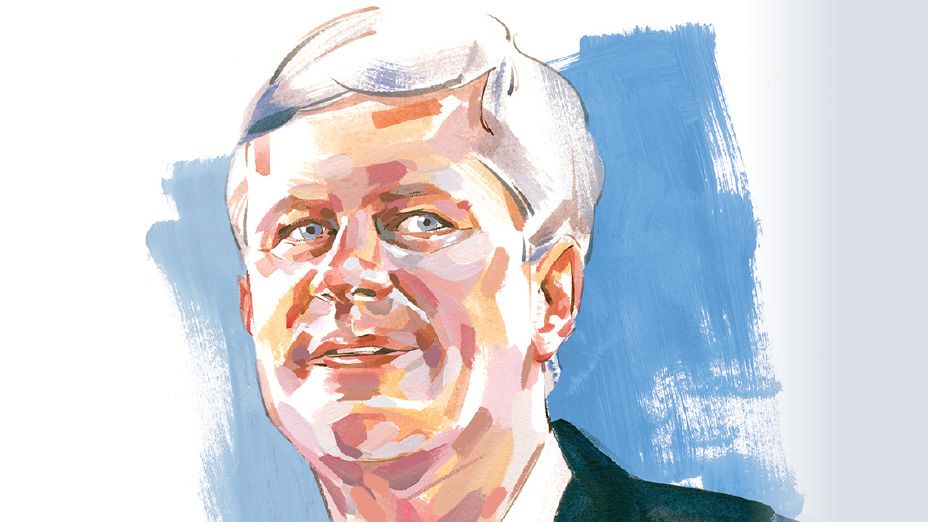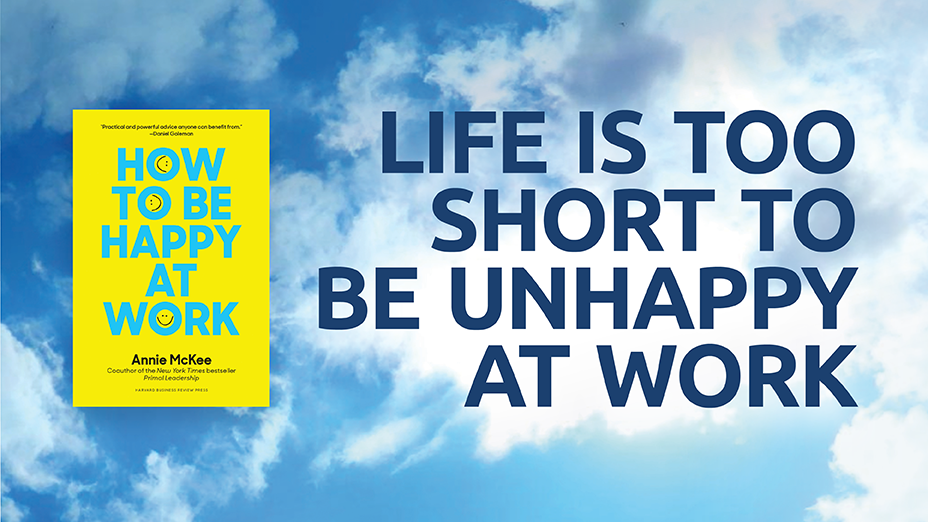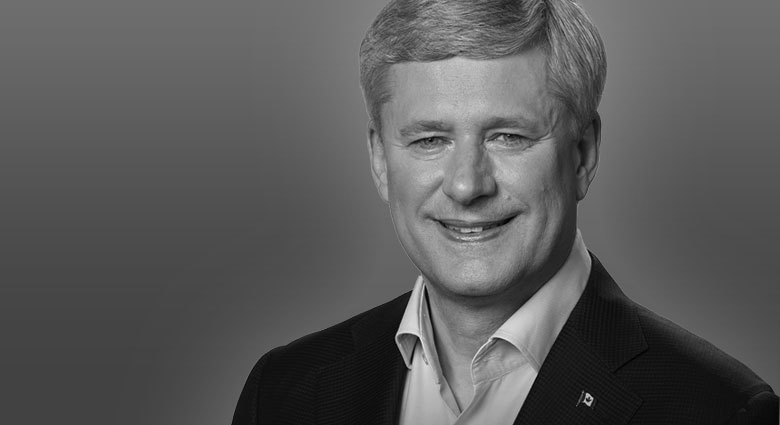Excerpt: In Right Here, Right Now: Politics and Leadership in the Age of Disruption, the former PM argues the ‘deplorables’ have something important to tell us.
Present-day populism is not an all-or-nothing proposition. There are parts of it that reflect legitimate grievances with the elite consensus. There are others that should be opposed. What is happening requires understanding and adaptation, not dogma and condescension.
Policy-making does not occur within a textbook version of reality.
Populists are not ignorant and misguided “deplorables.” They are our family, friends, and neighbours.
The populists are, by definition, the people.
In a democratic system, the people are our customers. And, according to conservative market values, the customer is always right. Part of developing these alternatives involves challenging some preconceived ideas about populism. Populism is not entirely incompatible with markets, trade, globalization, and immigration. My own political career is proof.
My time as prime minister occurred largely during and after the global financial crisis. Under my government, Canada avoided the worst of the crisis and came out of it all the stronger. For Canadian Conservatives, it was the longest-serving government since 1891. By any measure, we left the country in good shape. No populist insurgency arose on our right, and as a consequence, since we returned to opposition in 2015, we have remained a strong and united party.
Through our numerous successes — and our occasional blunders — Canadian Conservatives were implementing many of the policies and strategies that are necessary to respond to the challenges that Western societies currently face. I call this approach “populist conservatism.” What is populist conservatism? It is about putting conservative values and ideas into the service of working people and their families. It is about using conservative means for populist ends.
My populism was, I suppose, an outgrowth of a public-school, middle-class background. That experience taught me the importance of making policy relevant to regular working families. Donald Trump’s upset victory and tumultuous first eighteen months in office have produced plenty of predictions about our future politics. Some claim conservatism is “dead.” Others say the same about populism. But none of this changes the forces that put Trump in office. Populism will be with us as long as working men, women, and families continue to face current economic and social pressures, and conventional political parties do not adapt. And if they do not, troubling elements of the populist agenda could prove more potent in the hands of more focused political operators.
Policy-making does not occur within a textbook version of reality.
It happens in the real world, with trade-offs, imperfect options, and non-economic considerations. There are a lot of obituaries being written, citing the decline of the West in general and of America in particular. These contain some elements of truth. For many of their authors, however, such a decline would clearly be a welcome development.
I do not share this perspective. There is no question that the Western world — most notably the United States — is going through a period of tumult and disruption. Nonetheless, democratic capitalist societies have historically shown unparalleled dynamism, resiliency, and adaptability.
I am confident that, with the right ideas, right choices, and right leadership, we will come out of this era better and stronger.
There are many people who seem to believe that they can wish the events of 2016 away. Influential elements in the United Kingdom — those sarcastically labelled “Remoaners” — look to reverse the Brexit vote or, at a minimum, to get a deal with the European Union that apes the U.K.’s current relationship. In the United States, much of the anti-Trump narrative displays a desire to deny the simple reality that he won because enough people in enough places willingly voted for him. The underlying hope in both cases is that things will “go back” to the way they were.
But that is not the trend. Populist, nationalist, and anti-establishment movements are continuing to grow. Just look at Europe. A late 2017 analysis of 22 European countries revealed that support for such parties is at its highest level in at least three decades. Recent votes in the Netherlands, the U.K., France, Germany, Italy, and elsewhere have seen such options make significant gains at the expense of the traditional centre left and centre right. In some cases, they are close to taking power. Even where they are not, they are often rendering the formation of government coalitions lengthy and laborious.
My diagnosis is simple: the populist trend will not stop until the issues driving it are being effectively addressed.
True, these new populist alternatives may ultimately fall short in the eyes of many of their followers. But human nature teaches us that those so disappointed are unlikely to “go back.” For the reasons they left in the first place, they will move on to the next new thing.
The more I have looked at these big political surprises, the less I think they should have been surprises.
We are living in an age of disruption of unprecedented scale, scope, and pace.
Whole industries are coming and going. New technologies are remaking jobs and communities. Cultural norms are shifting almost randomly. Seemingly no institution or aspect of traditional life is immune.
It is understandable — even predictable — that ordinary working people would be anxious under such circumstances. On top of that, the data indicates that significant numbers of them are experiencing serious, negative consequences. Thus, broad social disruption is morphing into widespread political disruption as night follows day. And this trend will continue if traditional political options, both conservative and liberal, double down on existing approaches.
Therefore, we must build an agenda that, while based on our enduring values, is focused on the issues that working people and their families are facing today. It must especially address populist concerns about market economics, trade, globalization, and immigration.
In addressing these things, conservatives should remain pro-market, pro-trade, pro-globalization, and pro-immigration at heart. Going in a completely opposite direction in any of these areas would be a big mistake with serious ramifications. But being pro-market does not mean that all regulations should be dismantled or that governments should never intervene. Being pro-trade does not imply that any commercial arrangement is a good one. Being pro-globalization should not entail abdicating loyalty or responsibility to our countries. And being pro-immigration should never mean sanctioning the erasure of our borders or ignoring the interests of our citizens.
In short, being pro-something is not an excuse for ideological tangents. It is about getting back to pragmatic applications of our values and away from theoretical abstraction in our actions. When it comes to public policy, it is about rolling up our sleeves, knowing the details, and monitoring the impacts on people’s lives. Yes, we have a general orientation, but that does not render all choices obvious or easy.
One can call this “populist conservatism” or “applied conservatism,” but, to my mind, it is really just conservatism. Conservatism is about seeing the world as it is and applying the lessons of experience to new challenges.
It is inherently populist in the sense that it is necessarily concerned with people rather than theories.
Conservative columnist Charles Krauthammer once wrote that “if we don’t get politics right, everything else risks extinction.” It seems a tad hyperbolic, but bad human relations do have a way of wrecking everything else. Stable and responsive politics is an essential ingredient to a strong, dynamic society. Places where politics fail invariably experience broader economic and social challenges.
We are living in an age of disruption of unprecedented scale, scope, and pace.
Politics is not everything, but it is essential in providing a framework for individuals, families, and communities to succeed. Politics today is exceptionally troubled. That is a great irony. This is an exciting time to be alive. We are in an age of greater wealth for more people than ever before. We are living longer and healthier lives. Technological developments are opening doors to human possibilities.
But to seize these opportunities, we need to ensure that we get our politics right.
Whether or not you accept my analysis and prescriptions, I hope they will cause you to think about what we can do in this unprecedented age of disruption to get it right — right here, right now.
Excerpted from Right Here, Right Now: Politics and Leadership in the Age of Disruption by Stephen J. Harper. Copyright © 2018 Harper & Associates Consulting, Inc. Published by Signal, an imprint of McClelland & Stewart, a division of Penguin Random House Canada Limited. Reproduced by arrangement with the Publisher. All rights reserved.





.png)

.jpg)


What Did You Think?